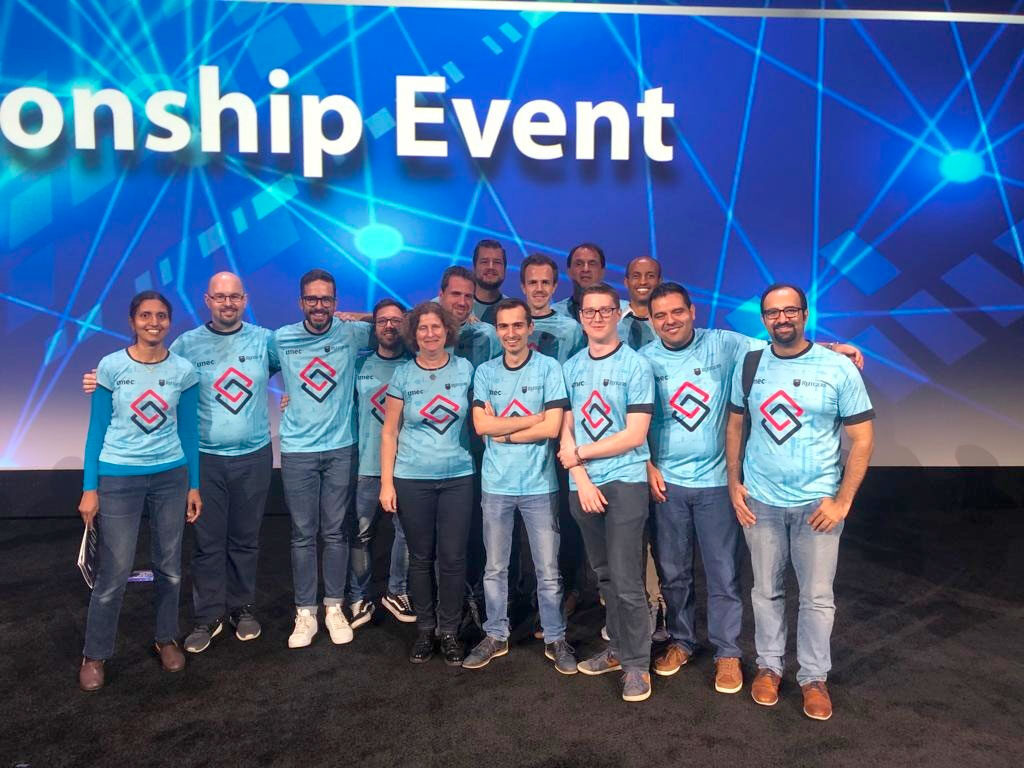Team SCATTER, with researchers from ORCA’s partners imec and Rutgers University ended 6th (out of 10) in the finale of the DARPA Spectrum Collaboration Challenge.
We are very proud about our team and we have developed a very collaborative intelligent radio system, with excellent features in terms of spectrum efficiency and QoS support (respecting max. latency, min. throughput and min. reliability requirements). I am confident we were one of the most (or even the most) collaborative teams of the competition, and in the end we were suffering from teams that used the spectrum more aggressively. We had a system that was based on LTE-technology, and that was designed for respecting isolation between co-lated networks and not for being resistent against interference, which appeared the most important feature in the top 5 matches. After all, participating in the DARPA Spectrum Collaboration Challenge was a very interesting experience. We gained a lot of insights (do’s and don’t) that will certainly shape the next decade of research.
The way Team SCATTER was presented by DARPA is: “Team SCATTER, true to its name, is not only scattered across the globe but also scattered across the spectrum. Their fully distributed approach adapts run-of-the-mill 4G/5G waveforms by nimbly moving across the spectrum, finding and predicting any open hole, and consuming any resource left unused.”

